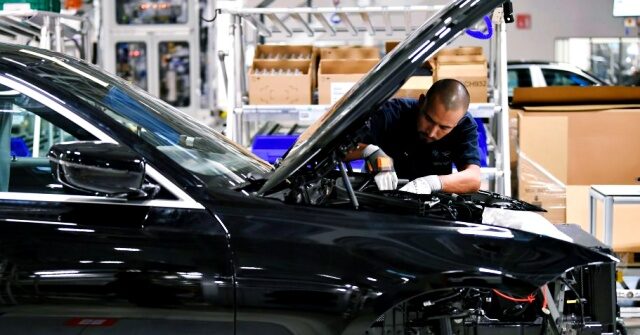China’s leading automakers are increasingly focusing on Mexico as a hub for manufacturing affordable Electric Vehicles (EVs), with ambitions to expand their market reach into the United States. Brands such as BYD Auto, Geely, Chery, and SAIC Motor are establishing a presence in Mexico by setting up dealerships and planning to build automotive plants. This strategic move is seen as a pathway for Chinese car manufacturers to tap into the lucrative U.S. market, an intention highlighted by the New York Times. The influx of these cheap EVs from China into Mexico is viewed as a stepping stone for future sales in the neighboring U.S., a territory where tariffs are comparatively low, with nearly 80 percent of vehicles produced in Mexico eventually sold in the U.S.
The trade relationship between Mexico and the U.S. has fostered a robust automotive sector, with the North American market enjoying a maximum tariff of just 2.5 percent on vehicles. However, former President Trump has expressed his concerns regarding Chinese investments in Mexican auto manufacturing, hinting at the potential for increased tariffs as a protective measure. Trump’s focus centers on the competitive edge that Chinese automakers could have by establishing plants in Mexico, allowing them to import vehicles into the U.S. at a fraction of the cost. He emphasized the risk to American manufacturing jobs in states like Michigan and South Carolina if the tariffs are not raised to curtail the influx of these vehicles.
Trump’s warnings reflect broader anxieties regarding the repercussions of globalization and foreign competition in the American auto industry. His predictions suggest that without intervention in the form of higher tariffs, the U.S. automobile industry could face significant decline and job losses, leading to devastating economic consequences for regions reliant on automotive manufacturing. This clash reveals the tension between U.S. domestic economic interests and the global expansion strategies of Chinese firms seeking to capitalize on new market opportunities.
In a shift illustrating the global automotive landscape, China became the largest exporter of cars in the world, surpassing Japan. This significant achievement underscores the ascendancy of Chinese automakers in the international arena, bolstered by their strategic transitions to electric vehicles. Furthermore, BYD Auto’s rise as the leading seller of EVs globally, eclipsing well-known American rival Tesla, marks a pivotal moment in the competition between U.S. and Chinese car manufacturers.
The automotive industry’s evolution is also intertwined with environmental considerations as the world increasingly shifts toward sustainable energy solutions. China’s aggressive push into electric vehicle production aligns with global trends aiming to mitigate climate change and reduce carbon emissions. While this shift presents economic opportunities for China, it simultaneously challenges traditional automotive powerhouses in the U.S. and worldwide, forcing them to adapt to a rapidly changing landscape.
In conclusion, the ambitions of Chinese automakers to establish a foothold in Mexico signal not just a significant shift in the automotive industry’s dynamics but potentially a reconfiguration of trade relations between Mexico, the U.S., and China. The competitive landscape is evolving, raising complex questions about tariffs, job security in American manufacturing, and the future relationship between these nations as global markets become increasingly interlinked. The upcoming decisions by politicians and businesses alike will play a critical role in shaping this new era of automotive innovation and trade.

